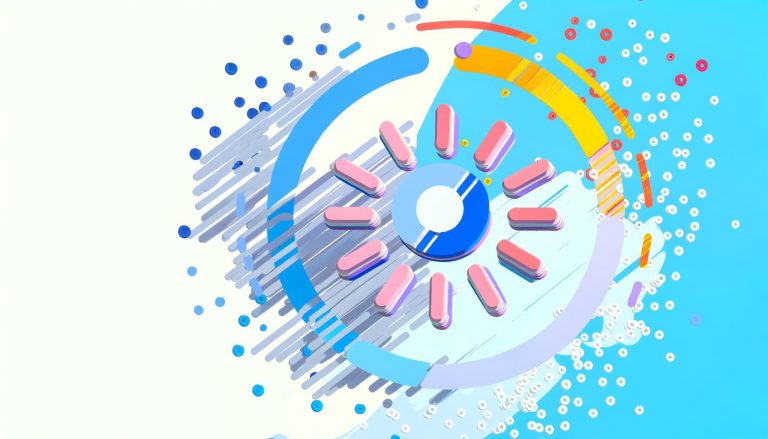In recent years, the integration of artificial intelligence (AI) with neurofeedback has pioneered a new frontier in mental health care. This revolutionary fusion holds the promise of providing more effective, personalized, and accessible brain training solutions. But what exactly does the future hold for AI-driven neurofeedback in mental health? In this article, we explore the transformative potential of this technology, its benefits, and practical applications for improving mental health outcomes.
The Basics of Neurofeedback and AI Integration
Neurofeedback is a type of biofeedback that uses real-time displays of brain activity to teach self-regulation of brain function. Traditionally, neurofeedback sessions involved monitoring an individual’s brainwaves, providing feedback, and guiding them towards a state of desired mental states through visual or auditory cues. The non-invasive nature of neurofeedback makes it a popular choice for addressing conditions such as anxiety, depression, ADHD, and more.
AI integration enhances neurofeedback by enabling more precise data analysis and personalized intervention plans. AI algorithms can rapidly analyze vast datasets, identify patterns in brain activity, and tailor training protocols specific to individual needs. This dynamic approach streamlines the process, making brain training more efficient and potentially more effective.
How AI-Driven Neurofeedback Works
AI-driven neurofeedback systems start by capturing brainwave data through EEG (electroencephalogram) sensors. The AI algorithms then process this data, detecting patterns and anomalies that might indicate specific mental health conditions. By analyzing these complex datasets, AI can provide personalized feedback that is both immediate and adaptable to the individual’s progress.
Here’s a simple breakdown of the workflow:
- Data Collection: EEG sensors collect brainwave data.
- Data Analysis: AI algorithms process and interpret the data.
- Feedback Loop: The system provides real-time feedback through visual and auditory cues.
- Adjustment: The system refines training protocols based on continual learning from user data.
The Benefits of AI-Enhanced Neurofeedback for Mental Health
The integration of AI into neurofeedback presents numerous advantages for mental health care:
1. Personalization
AI-driven neurofeedback offers a higher degree of customization. Through continuous learning, AI systems can adjust therapeutic protocols to align with the unique neural signatures of each individual, unlike traditional one-size-fits-all approaches.
2. Efficiency and Speed
The processing power of AI significantly speeds up data analysis. This means more immediate insights into neural activity patterns, allowing adjustments to be made in real-time, thereby reducing the number of sessions needed for effective outcomes.
3. Accessibility
With advancements in wearable technology and mobile applications, AI-driven neurofeedback can be delivered remotely. This increases access for individuals who may have transportation barriers or reside in remote areas, enhancing mental health care accessibility.
4. Objective Monitoring
AI systems gather unbiased, objective data, minimizing human error in interpretation. This can improve the reliability of mental health assessments, offering a more accurate understanding of an individual’s progress over time.
5. Cost-Effectiveness
As AI technology advances and becomes more widely adopted, the cost of implementing AI-driven neurofeedback is expected to decrease. This makes it an economically viable option for more people seeking mental health intervention.
Practical Applications and Future Prospects
The capabilities of AI in neurofeedback are already being applied across various domains of mental health care, and the future holds expansive horizons for its application.
1. Treating Anxiety and Depression
AI-driven neurofeedback provides personalized treatment for anxiety and depression by helping patients recognize and alter their brainwave patterns associated with these conditions. The potential for tailored session protocols means therapy can be more specifically targeted, offering promising outcomes.
2. Enhancing Cognitive Performance
Apart from addressing mental health disorders, AI-enhanced neurofeedback is being used to boost cognitive performance and mental acuity. This application is particularly valuable for individuals seeking to improve focus, memory, and overall cognitive function.
3. Educational Environments
In educational settings, neurofeedback with AI can support students by increasing attention spans and reducing impulsivity, thereby creating more conducive learning environments. The potential to customize learning interventions opens up promising paths for education tailored to diverse learning styles.
4. Workplace Wellbeing
Organizations are increasingly turning to neurofeedback technology to enhance employee wellbeing. AI-enhanced neurofeedback supports stress management and boosts productivity by helping employees develop resilience and maintain mental clarity.
The Road Ahead
Research on AI-driven neurofeedback continues to evolve, with exciting advances in brain-computer interfaces (BCIs) and machine learning models. As more studies validate its efficacy, we anticipate seeing wider adoption across clinical settings and beyond.
Considerations and Challenges
Despite its promising potential, AI-driven neurofeedback is not without challenges. Ethical considerations around data privacy are paramount, requiring stringent data protection measures. Additionally, further research is needed to establish comprehensive clinical guidelines and regulatory standards for its use.
Conclusion
The intersection of AI and neurofeedback marks a significant advancement in the realm of mental health care. By offering personalized, efficient, and accessible brain training solutions, AI-driven neurofeedback holds the potential to transform how mental health conditions are treated and managed. As we continue to innovate and explore this frontier, the future looks promising in achieving more effective mental wellness.
To explore how you can integrate wellness practices into your life, consider using tools like the Zenora App, which offers features such as mood and habit tracking through journal entries. Embracing tools that support mental health holistically can complement emerging technological advances, paving the way for personal growth and resilience.





